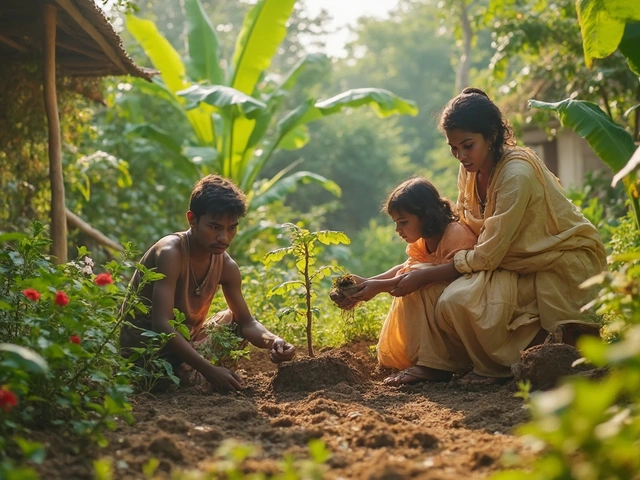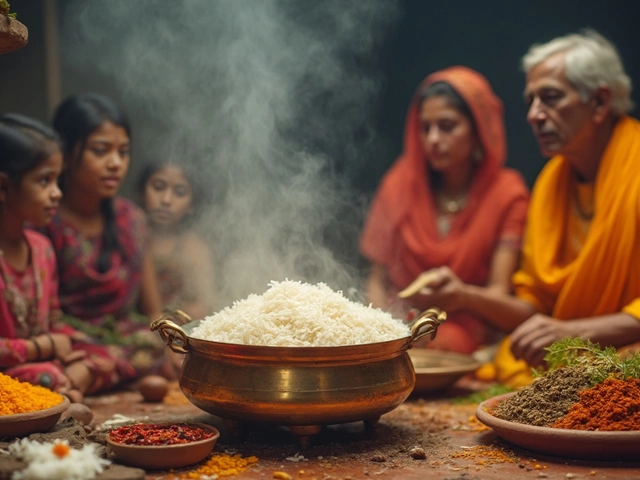Garden Solutions: Simple Ideas to Boost Your Indian Garden
Whether you have a tiny balcony in Delhi or a sprawling backyard in Kerala, the right garden solutions can turn any space into a thriving green spot. Below you’ll find practical tips you can try today—no jargon, no expensive tools, just what works for Indian climates.
Water Smarts: Drip Irrigation Made Easy
Water is the biggest cost in gardening, especially during the hot summer months. A basic drip system uses a low‑flow tube that sits just above the soil, delivering water right to the roots. To keep costs low, start with a simple garden hose, a few occasional‑use drip emitters, and some old plastic tubing. Bury the tubing a few centimeters deep (about 3‑4 inches) to protect it from the sun and reduce evaporation. Check the emitters once a week and flush the lines at the end of the season to prevent clogging.
Soil Fixes: Lightening Heavy Ground
Heavy, compacted soil chokes roots and makes watering a nightmare. The quickest fix is to mix in organic matter—compost, well‑rotten cow dung, or leaf mold—at a rate of one part amendment to three parts soil. For faster results, add a handful of coarse sand or perlite to improve drainage. Work the mixture into the top 20 cm of soil and water lightly; you’ll notice better root growth within a few weeks.
Balcony gardeners often complain that their soil is too dense for container plants. In that case, use a blend of potting mix, coconut coir, and a little vermiculite. This mix stays light, holds enough moisture, and drains excess water—perfect for windy, sunny balconies.
If you’re growing vegetables like broccoli or rice, pay attention to the specific soil needs. Broccoli thrives in loamy, well‑drained soil with a pH of 6.0‑6.8, while rice performs best in clayey, water‑logged paddies. Adjust the soil composition accordingly to avoid costly failures.
Another easy win is mulching. Spread a 5‑cm layer of straw, dry leaves, or shredded coconut on top of your beds. Mulch conserves moisture, suppresses weeds, and slowly adds organic material as it breaks down. It’s a low‑effort way to keep your garden healthy during the scorching Indian summer.
When it comes to pests, reach for natural solutions first. A simple spray of neem oil or a sprinkling of coffee grounds can deter many insects without harming beneficial bugs. Just remember that not all plants love coffee grounds—avoid using them on tomatoes, carrots, and begonias, as they can stunt growth.
Finally, think about the seasonal rhythm of flowers in India. Plant fast‑blooming species like marigold or hibiscus in the early monsoon to enjoy colors in just a few weeks. For a year‑round display, combine spring bloomers (petunias, lobelia) with winter favorites (pansies, cyclamen) and adjust planting times based on your region’s climate.
All these garden solutions are cheap, easy to set up, and work well across India’s diverse zones. Pick one or two ideas that fit your space, try them out, and watch your garden transform. Happy planting!
Does Apple Cider Vinegar Work as a Natural Insecticide? Facts, Recipes & Results
Curious about using apple cider vinegar as a natural insecticide? Get the real facts, tips, and science behind using ACV for pest control in this easy-to-read, fully detailed guide.
About
Gardening
Latest Posts


Should I Mist My Bonsai Tree? The Real Deal on Misting Bonsai
By Alden Thorne Jun 13, 2025

How Much Rice Does 2 Cups Uncooked Make: A Deep Dive into Rice Cultivation
By Alden Thorne Mar 17, 2025

Bonsai Care for Beginners: Simple Steps to a Healthy Tree
By Alden Thorne Apr 29, 2025

